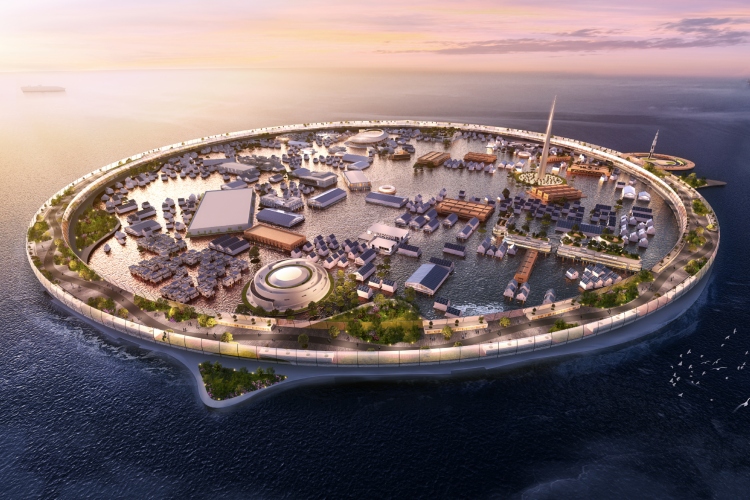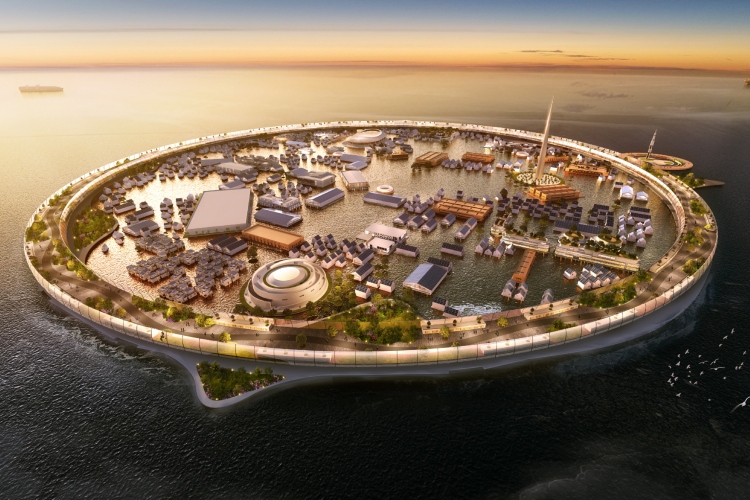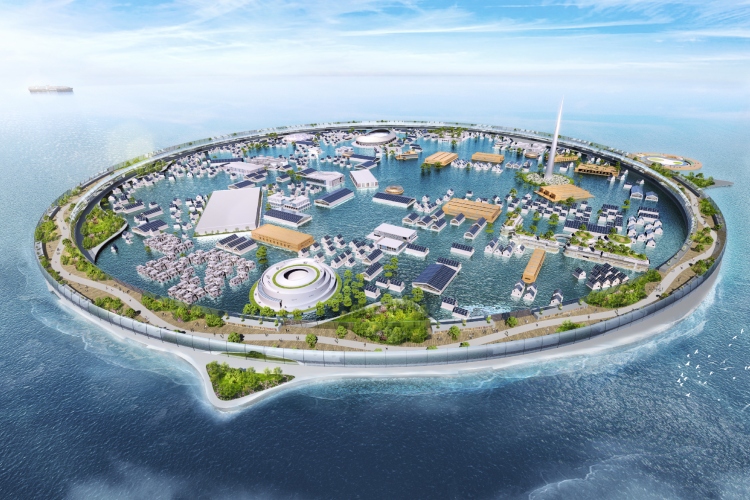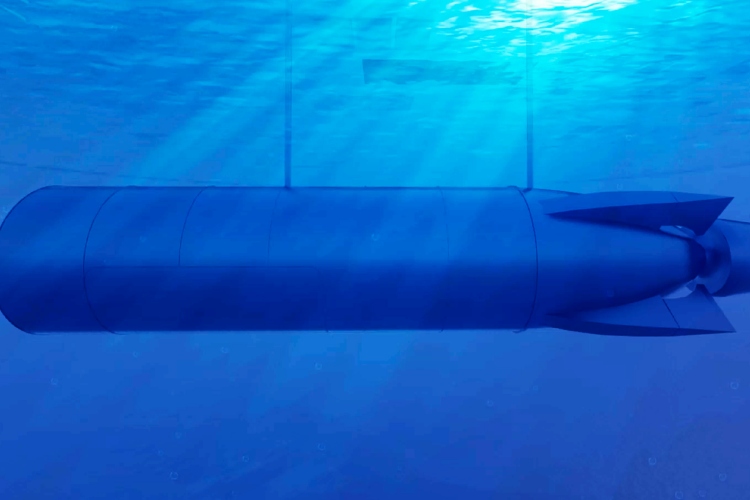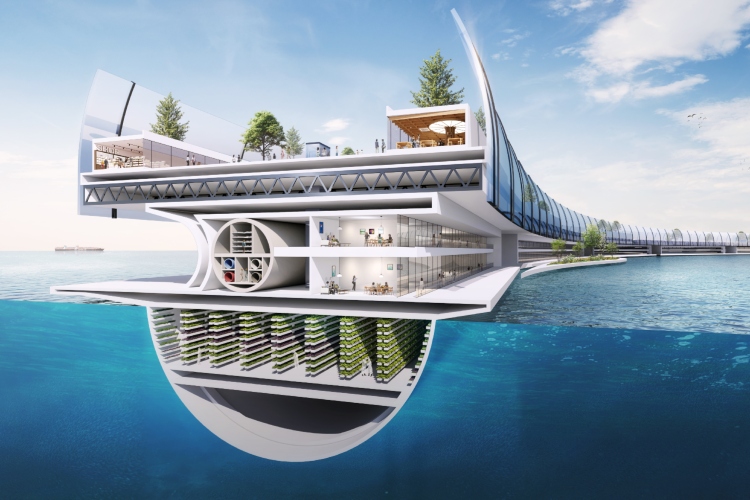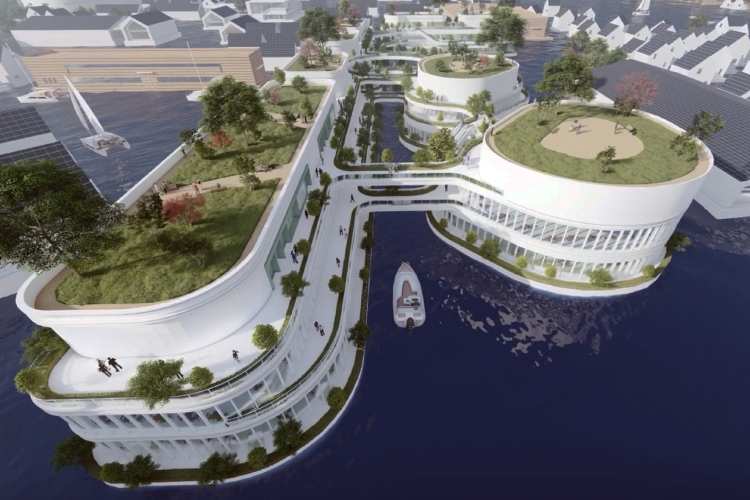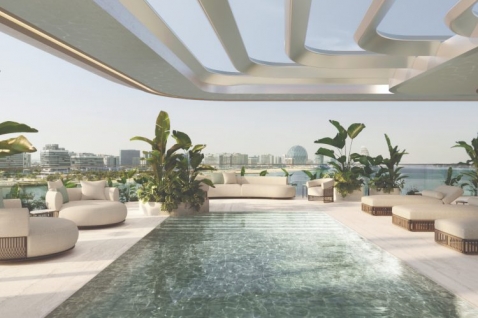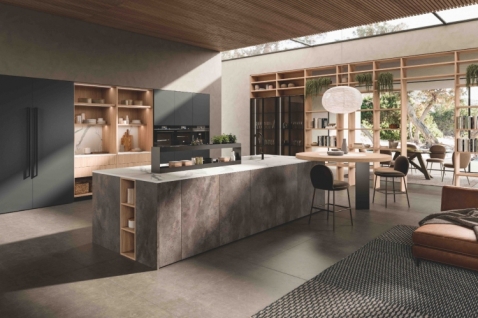More photos
A Japanese startup is building a floating city designed to adapt to climate change. Called Dogen City, the project will also provide state-of-the-art medical care for its 40,000 residents.
Plans for a floating metropolis called Dogen City have been revealed by startup N-Ark. At the heart of the pioneering concept is not only sustainability and the fight against climate change, but also the provision of state-of-the-art health services and disease prevention to its residents.
With an area of 390 hectares, the "immune" district will be able to accommodate 40,000 people (10,000 residents and 30,000 visitors or tourists). The circular structure will be able to withstand natural disasters and will include public housing, medical research centres, food production facilities, even places for launching into space.
"To sustain maritime enterprises and solve problems, political, business and technological strategies must come together to create a new maritime economy," N-Ark writes on its website.
Dogen City will consist of three layers, or "industries" as the company calls them, each with its own purpose. First, there is a populated, self-sustaining sea village that will provide a living infrastructure and promote mental and physical care. The ring shape also protects it from tsunami hazards. In addition, there is an underwater data centre, which will be naturally cooled by the ocean, reducing energy consumption. Finally, the last layer will function as a launch and landing area for the rocket, under the management of the SpaceX company.
While living in Dogen City, residents will be able to participate in daily medical check-ups via sensors, where blood samples will be taken and analysed to assess their health. In addition, they will have access to advanced robotic surgery and new innovative drugs. In terms of food, crops will be produced on site using innovative agricultural methods and technology based on seawater as a source of plant nutrients. This city is planned to produce almost 7,000 tons of food per year and 22,265,000 kW of electricity.
There is currently no information on exactly where Dogen City will be located and when it will be completed, but you can visit the N-Ark website for more information.

